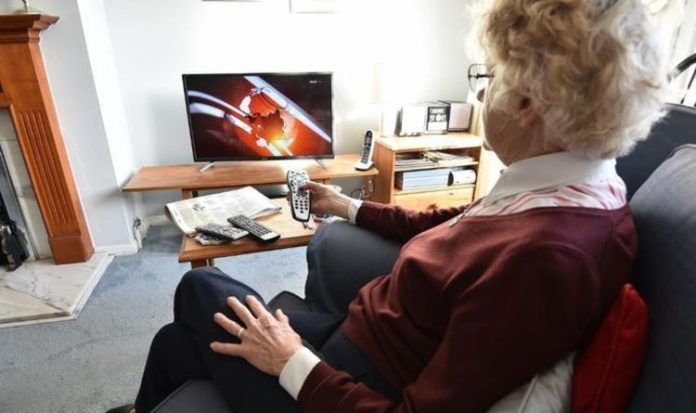Ministers want to replace the criminal sanction for licence-fee evasion with a civil penalty but critics warn such a move could cause additional anxiety to vulnerable people as private bailiffs would have a greater role in collecting the money. Age campaigners said the thought of debt collectors knocking on pensioners’ doors was “distressing and frightening”.
The warning comes as letters were sent out to millions of over-75s telling them to pay the £157.50 licence.
Over-75s who do not buy a licence but continue watching television could be prosecuted and sent to prison if they refuse to pay the resulting fine of up to £1,000.
The Government wants to decriminalise evasion and a decision is expected later this year.
Under the new plans, non-payment of the licence fee is likely to be treated as a civil monetary penalty — similar to a parking fine — or a civil debt, like an unpaid utility bill.
Under both systems, debt collection is outsourced to private bailiffs, with individuals also required to pay their fees.
The Government’s own consultation document states: “The use of enforcement agents to enforce the debt may cause additional anxiety for individuals who may already be vulnerable.”
READ MORE: BBC FURY: Beeb savaged over ‘deeply immoral’ TV licence fee
In its submission to the consultation, the BBC warned civil enforcement would allow items to be seized and “sold by a bailiff”.
It said: “Action taken by bailiffs is by its very nature intrusive. TV Licensing does not use them to recover arrears.”
Caroline Abrahams, charity director of Age UK, which has campaigned to protect free licences, said: “We are aware that any decriminalisation of the TV licence enforcement process would in all likelihood lead to greater use of bailiffs to reclaim the money due and that’s one of the reasons why we are wary of any such policy shift.
“It is hard to think of anything more distressing and frightening for an older person than to have a bailiff turn up at their front door, demanding entry.”
Culture Secretary Oliver Dowden acknowledged there were pitfalls and pledged a second consultation on how to replace the criminal sanction.
The BBC said decriminalisation would slash its annual income by around £300 million a year.
A spokesman said: “As a universal service we need an enforcement system with appropriate sanctions otherwise it is unfair to those who do pay.
“A detailed Government-commissioned review has already found the current system is the fairest and most effective.”
He said many pensioners had already cancelled their automatic payments with to try to jam TV Licensing’s administration systems rather than put protesters at risk of prosecution by refusing to pay.
Silver Voices said: “It defies belief that, as a second wave of coronavirus marches over the horizon, the BBC are doing this.
“It shows a lack of compassion, a lack of empathy, a lack of understanding.”







